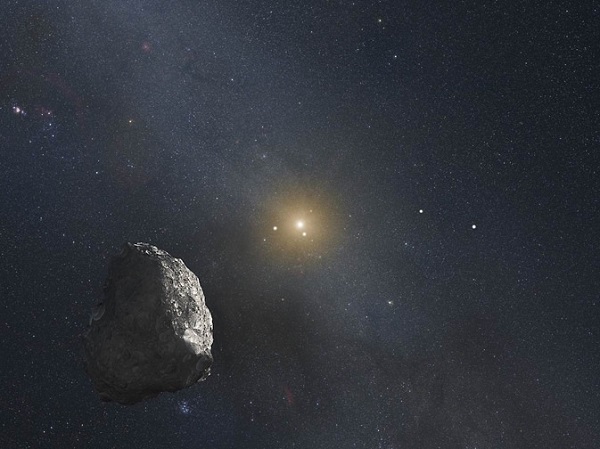Results from a study carried out during an around the world cruise by a research ship, scientists have found that 88 percent of the oceans’ surface contains plastic debris, leading to concerns about the effects on both marine life and the food chain. Plastic debris is floating on the tops of waves across all of Earth’s oceans and it is becoming a serious problem.
Until now, researchers have been unsure as to how widespread it is. Now, however, scientists have found that there are currentlly five large accumulatioins of plastic debris in the open ocean that match up with the five major twists of oceanic surface water circulation, proving that all of the world’s oceans have plastic debris on their surfaces, Auto World News reported.
 Andres Cozar, one of the researchers, said, “Ocean currents carry plastic objects which split into smaller and smaller fragments due to solar radiation. Those little pieces of plastic, known as microplastics, can last hundreds of years and were detected in 88 percent of the ocean surface sampled during the Malaspina Expedition 2010.”
Andres Cozar, one of the researchers, said, “Ocean currents carry plastic objects which split into smaller and smaller fragments due to solar radiation. Those little pieces of plastic, known as microplastics, can last hundreds of years and were detected in 88 percent of the ocean surface sampled during the Malaspina Expedition 2010.”
The study estimates only floating debris and not plastic that may reside beneath the surface or on the ocean floor and results from bags, food containers, utensils, toys and other discarded plastic garbage which has made its way into the oceans via storm water runoff.
The researchers note that the results obtained by the Malaspina Expedition illustrate that the problem of plastic waste pollution has a global nature. The major residues found are polyethylene and polypropylene, which are polymers used in the production of everyday products such as bags, food and beverage containers, kitchen utensils and toys.
According to Science World Report, “The Malaspina Circumnavigation Expedition 2010 was a project that included more than 400 researchers from around the world. Researchers studied the impact of global change on the ocean ecosystem and explored its biodiversity. Sailing onboard a ship, they took nearly 200,000 water, plankton, atmospheric particles and gases samples in 313 points of the Indian, Pacific and Atlantic Oceans. Unfortunately, they found far more plastic debris than previously expected.”
“These microplastics have an influence on the behavior and the food chain of marine organisms,” said Cozar.
These disturbing findings show that plastic debris and plastic pollution is a far more widespread problem than initially thought. Rather than being isolated in small pockets on the ocean, it is truly a global problem.
Kara Lavender Law, who studies plastic pollution at the Sea Education Association in Woods Hole, Massachusetts, says that this new study gives the first global estimate she knows of for the floating plastic debris.
While Law was not involved in the study, she said that the estimate ‘appears to be in the ballpark’ given the results of prior regional studies.
She said, “We are putting, certainly by any estimate, a large amount of a synthetic material into a natural environment.”
“We’re fundamentally changing the composition of the ocean,” she added.
Results from a study carried out during an around the world cruise by a research ship, scientists have found that 88 percent of the oceans’ surface contains plastic debris, leading to concerns about the effects on both marine life and the food chain. Plastic debris is floating on the tops of waves across all of Earth’s oceans and it is becoming a serious problem.
Until now, researchers have been unsure as to how widespread it is. Now, however, scientists have found that there are currentlly five large accumulatioins of plastic debris in the open ocean that match up with the five major twists of oceanic surface water circulation, proving that all of the world’s oceans have plastic debris on their surfaces, Auto World News reported.
Andres Cozar, one of the researchers, said, “Ocean currents carry plastic objects which split into smaller and smaller fragments due to solar radiation. Those little pieces of plastic, known as microplastics, can last hundreds of years and were detected in 88 percent of the ocean surface sampled during the Malaspina Expedition 2010.”
The study estimates only floating debris and not plastic that may reside beneath the surface or on the ocean floor and results from bags, food containers, utensils, toys and other discarded plastic garbage which has made its way into the oceans via storm water runoff.
The researchers note that the results obtained by the Malaspina Expedition illustrate that the problem of plastic waste pollution has a global nature. The major residues found are polyethylene and polypropylene, which are polymers used in the production of everyday products such as bags, food and beverage containers, kitchen utensils and toys.
According to Science World Report, “The Malaspina Circumnavigation Expedition 2010 was a project that included more than 400 researchers from around the world. Researchers studied the impact of global change on the ocean ecosystem and explored its biodiversity. Sailing onboard a ship, they took nearly 200,000 water, plankton, atmospheric particles and gases samples in 313 points of the Indian, Pacific and Atlantic Oceans. Unfortunately, they found far more plastic debris than previously expected.”
“These microplastics have an influence on the behavior and the food chain of marine organisms,” said Cozar.
These disturbing findings show that plastic debris and plastic pollution is a far more widespread problem than initially thought. Rather than being isolated in small pockets on the ocean, it is truly a global problem.
Kara Lavender Law, who studies plastic pollution at the Sea Education Association in Woods Hole, Massachusetts, says that this new study gives the first global estimate she knows of for the floating plastic debris.
While Law was not involved in the study, she said that the estimate ‘appears to be in the ballpark’ given the results of prior regional studies.
She said, “We are putting, certainly by any estimate, a large amount of a synthetic material into a natural environment.”
“We’re fundamentally changing the composition of the ocean,” she added.











